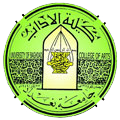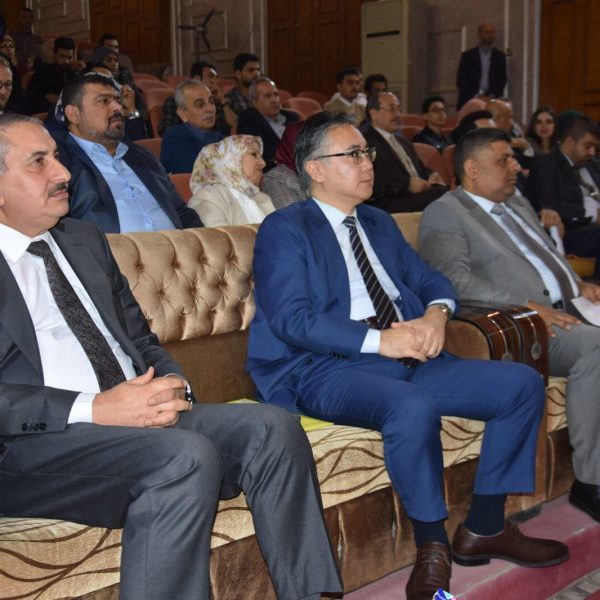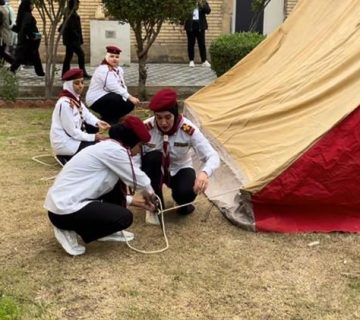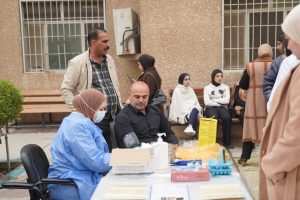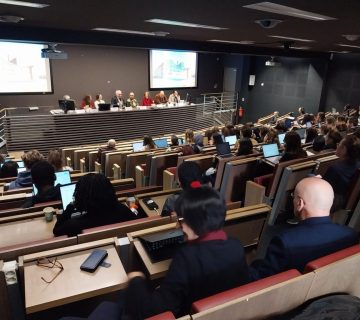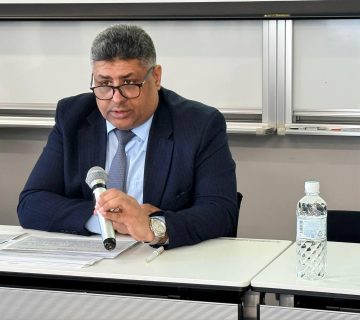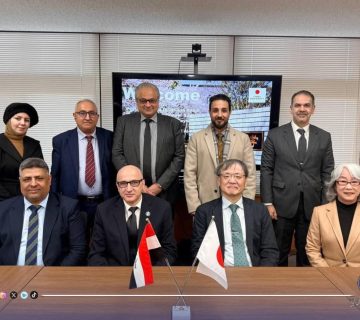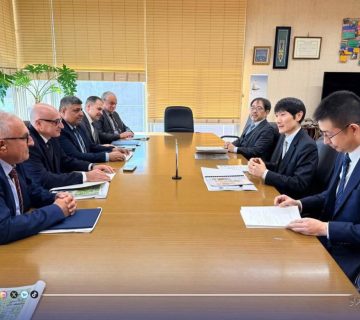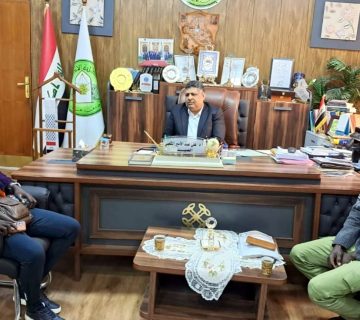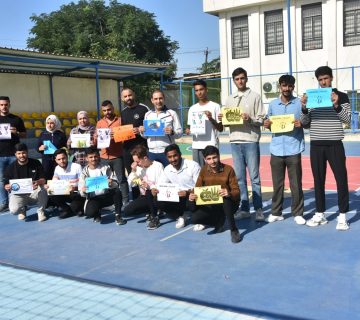The 14th Iraqi-Japanese Workshop, held at the College of Arts of the University of Baghdad, marked a significant collaborative effort in conjunction with Al-Mustansiriyah University, Al-Iraqia University, Chiba University, Beit Al-Hikma, the Japan International Cooperation Agency (JICA), the JICA Alumni Association-Iraq, and with the generous sponsorship of the Japan Association for the Advancement of Science. Commencing from the 18th to the 24th of November, the workshop unfolded under the patronage of Prof. Dr. Munir Hamid Al Saadi, the President of Baghdad University, and the vigilant supervision of Prof. Dr. Ali Abdul Amir Sajet, the Dean of the College of Arts.
The workshop’s inauguration coincided with the Al-Aqsa Uprising of the Palestinian people and marked the 75th anniversary of the establishment of the College of Arts at the University of Baghdad. The event drew the participation of Mr. Futoshi Matsumoto, the Japanese Ambassador to Iraq, alongside numerous distinguished Iraqi and Japanese professors and researchers. The first day, hosted at the College of Arts, featured three insightful sessions. Prof. Dr. Salah Fleifel Ayed Al-Jabri chaired the first session, where Prof. Eiji Oguma from Keio University presented “Defeat and Democracy: Japan’s experience after World War II,” and Dr. Tariq Jassim Hussein from the University of Baghdad explored “The Secularisation of the State in the Edo Era 1601-1867.” Prof. Falah Hassan al-Asadi and Prof. Dr. Mahmoud Abdul Wahid Al-Qaisi engaged in enlightening discussions.
The second session, under the title “JICA Japan and Iraq: History of Economic and Cultural Development,” was chaired by Dr. Alia Abdul Hussein Nasser. It featured Mr. Jane Unida’s presentation on “JICA for Iraqi Development” and Dr. Bashir Hamoud Alwan’s discourse on “Japan and Iraq: the Shift towards Culture.” Prof. Dr. Enaam Mahdi Salman provided insightful commentary as the discussant.
The third session, “Japanese and Iraqi Studies: Attempts to Document,” chaired by Prof. Dr. Salam Abd Ali al-Abadi, showcased diverse research perspectives. Prof. Keiko Sakai from Chiba University explored “The History of Japanese Studies on the Middle East,” Prof. Dr. Mahmoud Abdul Wahid Al-Qaisi delved into the “History of Japanese Studies on Iraq,” Asst. Prof. Nadia Yassin Abed presented “Baghdad’s Architectural Heritage in the Ottoman Era Between Past and Present: the case of the new District of Hassan Pasha,” and Asst. Prof. Kafah Ahmed Al-Najjar investigated “The Disappearing of Heritage Cafes in Baghdad.” Dr. Bashir Al-Daraji contributed valuable insights as the discussant.
The 14th Iraqi-Japanese Workshop emerged as a platform for scholarly exchange, fostering a deeper understanding of historical, societal, and heritage perspectives shared between Iraq and Japan. This collaborative initiative, coinciding with significant historical events, serves as a beacon for continued cross-cultural dialogue and academic cooperation between these two nations. As we reflect on the diverse array of topics explored during the workshop, it becomes evident that such engagements play a crucial role in bridging gaps, promoting cultural understanding, and paving the way for future collaborative endeavors in academia.
